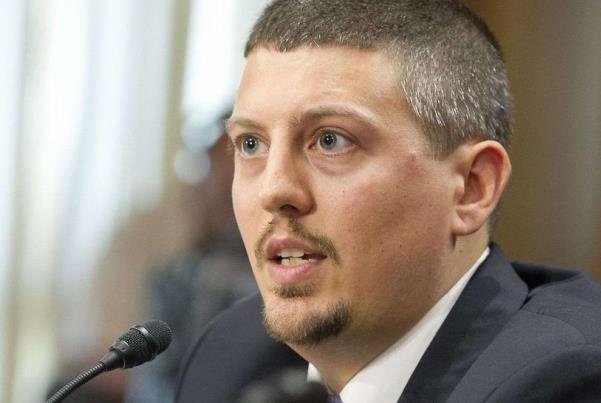Iran intended to show military power by firing missiles at ISIL: Richard Nephew

TEHRAN – By firing missiles at ISIS positions in Syria on June 18, Iran intended to show its military power to countries inside and outside the region, says Richard Nephew who worked on Iran sanctions issues for the Obama administration.
“Iran's missile strike against those targets in Syria may have been intended to warn states inside and outside of the Middle East about its capabilities -- in addition to attacking those targets,” Nephew tells the Tehran Times.
“The missile launch by Iran actually confirmed for those concerned about its missile program the physical capability it affords Tehran to strike distant targets at its discretion,” he explains.
Iran has repeatedly said that its missile program is only for defensive purposes. In comments in March 2016, Iranian Foreign Minister Mohammad Javad Zarif said, “If we had missiles during Saddam’s war on us, they may have discouraged or at least reduced his indiscriminate attacks on our civilians.”
Zarif was referring to former Iraqi dictator Saddam Hussein whose army invaded Iran in 1980 and even used chemical weapons against civilians.
Regarding its size and population, Iran still spends the least on military. Just recently the United States signed a 110 billion dollars arms deal with Saudi Arabia, a country which its new tribal rulers are showing teeth to Iran.
Nephew defends the Senate’s decision in approving legislation introducing new sanctions against Iran for its missile program.
“I believe that the sanctions passed by the U.S. Senate underscore the concerns felt by the United States -- as well as other countries -- with some aspects of Iranian policy and activity.”
The UN Security Council Resolution 2231, which endorsed the July 2015 nuclear deal between Iran and great powers, calls on Tehran not to test missiles capable of carrying nuclear warheads.
In a tweet in March 2016 Zarif also said, “Neither #JCPOA nor SC Res prohibit Iran from missiles not designed for nuke warheads. Read the Document: It's plain English not legalese.”
Under the nuclear deal, officially called the Joint Comprehensive Plan of Action (JCPOA), Iran has given guarantees that it will not produce nuclear weapons, and the UN nuclear body - the International Atomic Energy Agency - which is tasked to monitor the implementation of the nuclear deal, is conducting the most comprehensive inspection of Iran’s nuclear activities.
‘Better ties possible between Iran and U.S.’
However, Nephew says Washington and Tehran can bridge their differences through addressing common concerns.
“I believe that a better relationship between the United States and Iran is possible, but that resolution of some of these concerns would be a necessary component of doing so. Until such a relationship is possible, the United States will take national action to respond to its concerns, just as Iran has and will likely do in the future.”
‘New U.S. sanctions do not violate JCPOA’
The former Obama administration also refutes remarks by certain experts that the new non-nuclear sanctions against Iran are intended to reinstate “dismantled nuclear sanctions” in a new way.
“It is not true that the sanctions adopted by the U.S. Senate restore ‘dismantled nuclear sanctions’. The sanctions passed by the Senate, which still need to be reviewed by the U.S. House of Representatives, do address other areas of concern, such as Iran's ballistic missile program and human rights record. This is not prohibited by the JCPOA, though the JCPOA does affect how much the United States can do in the area of non-nuclear sanctions. I believe the text passed by the Senate strikes the right balance and is in compliance with the JCPOA.”
He goes on to say that “the specific sanctions contained in this legislation are sufficiently similar to what is already in law that, in my view, the practical differences to Iran and its missile program are very modest.”
On what policy should the U.S. adopt toward the rising tension between Iran and Saudi Arabia, he says, “I do think that the United States generally maintains a desire for states around the world to use diplomacy and dialogue to resolve their problems. This would apply as much to Saudi Arabia and Iran as anywhere else in the world.”
In a television interview in early May, Saudi Defense Minister Mohammed bin Salman accused Iran of coveting dominance of the Muslim world. He also said that “we won’t wait for the battle to be in Saudi Arabia.”
“Instead,” he continued, “we’ll work so that the battle is for them in Iran.”
‘Very limited utility to empower any particular groups inside Iran’
Nephew also says he does not know what Secretary of State Rex Tillerson meant by saying that the U.S. will support “elements inside Iran” for regime change.
“Since I left the U.S. government, I'm not aware of what groups specifically Secretary Tillerson has in mind. I do think that it is possible that there is misinterpretation of what Tillerson said and has in mind… But, here, I must defer to whatever the State Department says in clarification. My own, personal view is that there is very limited utility in the United States seeking to empower any particular groups inside of Iran given the nature of our own history,” Nephew explains.
JH/PA
Leave a Comment